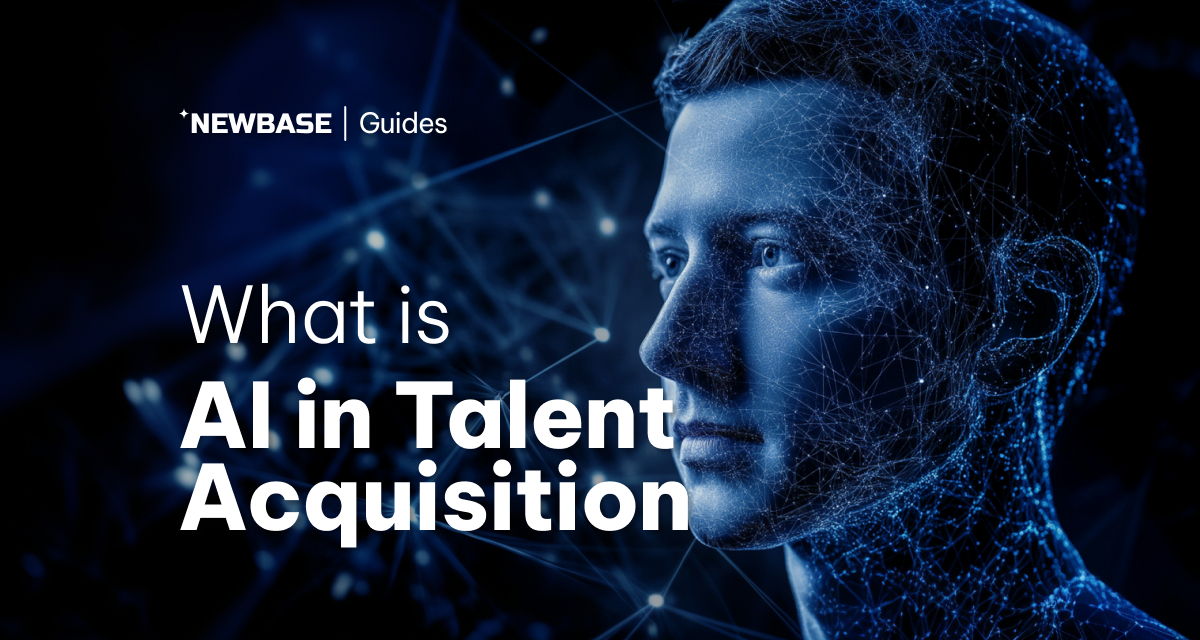AI in Talent Acquisition: Transforming Recruitment Processes with Technology

Artificial Intelligence (AI) is reshaping industries worldwide, and talent acquisition is no exception. By leveraging advanced AI technologies, organizations are revolutionizing their recruitment processes, making them more efficient, equitable, and effective. This comprehensive exploration delves into the significance of AI in talent acquisition, key technologies, benefits, challenges, and strategies for implementation.
What is AI in Talent Acquisition?
AI in talent acquisition refers to the application of artificial intelligence technologies to optimize and enhance the process of sourcing, recruiting, and hiring employees. It involves tools and techniques such as machine learning, natural language processing (NLP), and generative AI to streamline workflows, improve candidate experiences, and ultimately hire the best talent.
Organizations leveraging AI in talent acquisition benefit from faster hiring cycles, improved candidate engagement, and reduced operational costs. According to McKinsey, 88% of professionals using generative AI tools report increased productivity, underscoring AI’s potential to enhance recruitment practices.
Why is AI in Talent Acquisition Important?
Human Resources (HR) departments are pivotal to organizational success, yet they often grapple with labor-intensive processes that detract from strategic initiatives. AI addresses these inefficiencies by:
- Improving the Candidate Experience
AI-powered tools such as chatbots provide candidates with instant access to job-related information, clarify job descriptions, and answer queries. By demonstrating the use of cutting-edge technologies, organizations appeal to tech-savvy candidates, especially in industries like IT.
- Enhancing Recruitment Strategies
By automating repetitive tasks, AI enables HR professionals to focus on building relationships with top candidates and crafting compelling value propositions for prospective employees.
- Fostering Happier Employees
AI streamlines administrative responsibilities, allowing HR teams to engage in more meaningful and rewarding activities. This shift enhances job satisfaction among HR professionals while improving organizational effectiveness.
Key Use Cases of AI in Talent Acquisition
AI is revolutionizing talent acquisition through various applications:
- Idea and Script Generation
Generative AI tools assist HR professionals in crafting personalized communication, responding to candidate inquiries, and creating scripts for interviews or onboarding processes.
- Candidate Screening
AI can analyze candidates’s public profiles, such as social media and portfolios, to identify potential red flags or highlight promising qualifications. This automation reduces the time spent on manual screening.
- Rapid Employee Onboarding
AI accelerates onboarding by automating the setup of essential tools, accounts, and training schedules, enabling new hires to contribute effectively from day one.
- Customized Job Postings
AI can generate tailored job descriptions to appeal to specific candidate segments, ensuring relevance and reducing the likelihood of attracting unqualified applicants.
- One-Way Video Interviews
AI facilitates pre-screening interviews by asking candidates a series of questions and analyzing their responses. This approach saves time while providing valuable insights for subsequent stages.
Strategies for Implementing AI in Talent Acquisition
Successful integration of AI into recruitment processes requires strategic planning and continuous evaluation. Key steps include:
- Auditing Roles and Tasks
Organizations should map out current talent acquisition workflows to identify inefficiencies and opportunities for AI-driven enhancements.
- Identifying the Right Tools
HR teams should collaborate with IT departments to evaluate AI solutions. Options range from general-purpose tools like ChatGPT to industry-specific platforms tailored for recruitment.
- Building Responsible AI Frameworks
Responsible AI practices are critical to avoiding ethical pitfalls and legal repercussions. Organizations must ensure transparency, fairness, and inclusivity in their AI systems.
- Testing and Learning
Pilot AI technologies in controlled environments to identify potential biases and evaluate candidate responses. Gradual rollouts allow for refinement based on feedback.
- Continuous Review and Debriefing
Regular assessments of AI systems ensure they align with organizational goals and adapt to evolving recruitment needs.
Benefits of AI in Talent Acquisition
AI delivers transformative benefits for HR teams, candidates, and organizations:
- Reduced Recruiting and Hiring Costs
By automating tasks like resume screening and interview scheduling, AI minimizes manual effort and lowers operational expenses.
- Quicker Hiring Decisions
AI accelerates the identification and evaluation of candidates, enabling organizations to secure top talent before competitors.
- Improved Candidate Engagement
Personalized interactions driven by AI enhance the candidate experience, fostering positive impressions and increasing the likelihood of acceptance.
- Enhanced Quality of Hires
AI leverages predictive analytics to match candidates with roles, ensuring better alignment and reducing turnover.
Challenges of AI in Talent Acquisition
Despite its advantages, AI presents certain challenges that organizations must address:
- Inherited Bias
AI systems trained on biased data can perpetuate inequities in hiring. Regular audits and diverse training datasets are essential to mitigate this risk.
- Increased Startup Costs
Implementing AI requires significant initial investment in technology, training, and infrastructure. However, long-term efficiency gains often offset these costs.
- Decreased Human Connection
Over-reliance on AI might make the recruitment process feel impersonal. Balancing automation with human interaction ensures a positive candidate experience.
- Prospect and Employee Concerns
Transparency about AI usage is critical to alleviating fears and building trust among candidates and employees.
The Future of AI in Talent Acquisition
AI’s role in talent acquisition will continue to grow as organizations refine their strategies and AI technologies advance. From predictive hiring trends to real-time skill gap analysis, AI will enable HR teams to anticipate future needs and maintain competitive advantages. However, ethical considerations and the need for diverse hiring practices will remain at the forefront of AI-driven recruitment strategies.
Conclusion
AI is transforming talent acquisition, offering organizations unprecedented opportunities to improve efficiency, candidate engagement, and hiring outcomes. By adopting responsible AI practices and embracing continuous learning, organizations can harness AI to build diverse, high-performing teams while navigating the complexities of a dynamic recruitment landscape.